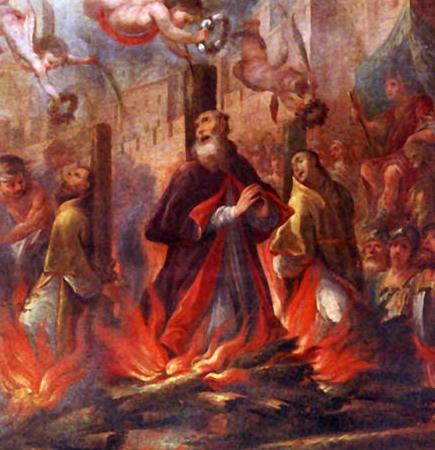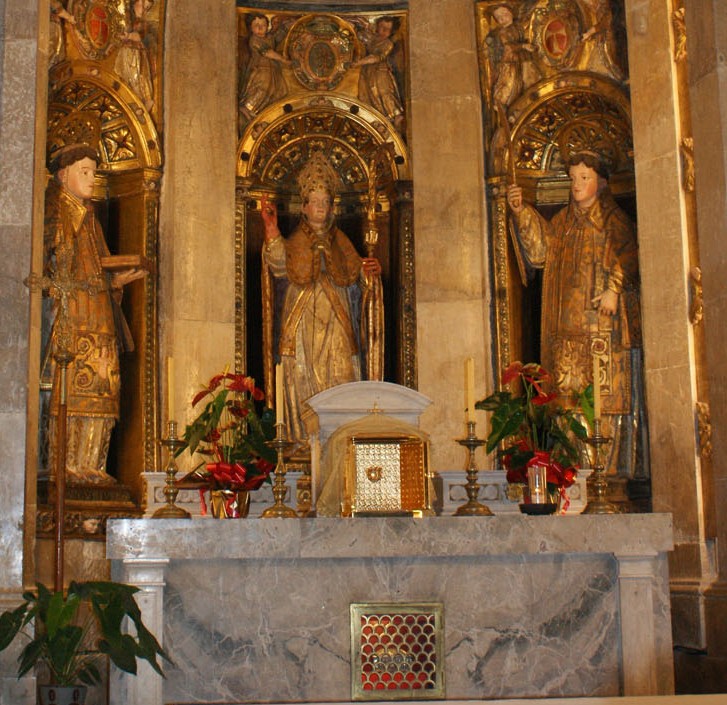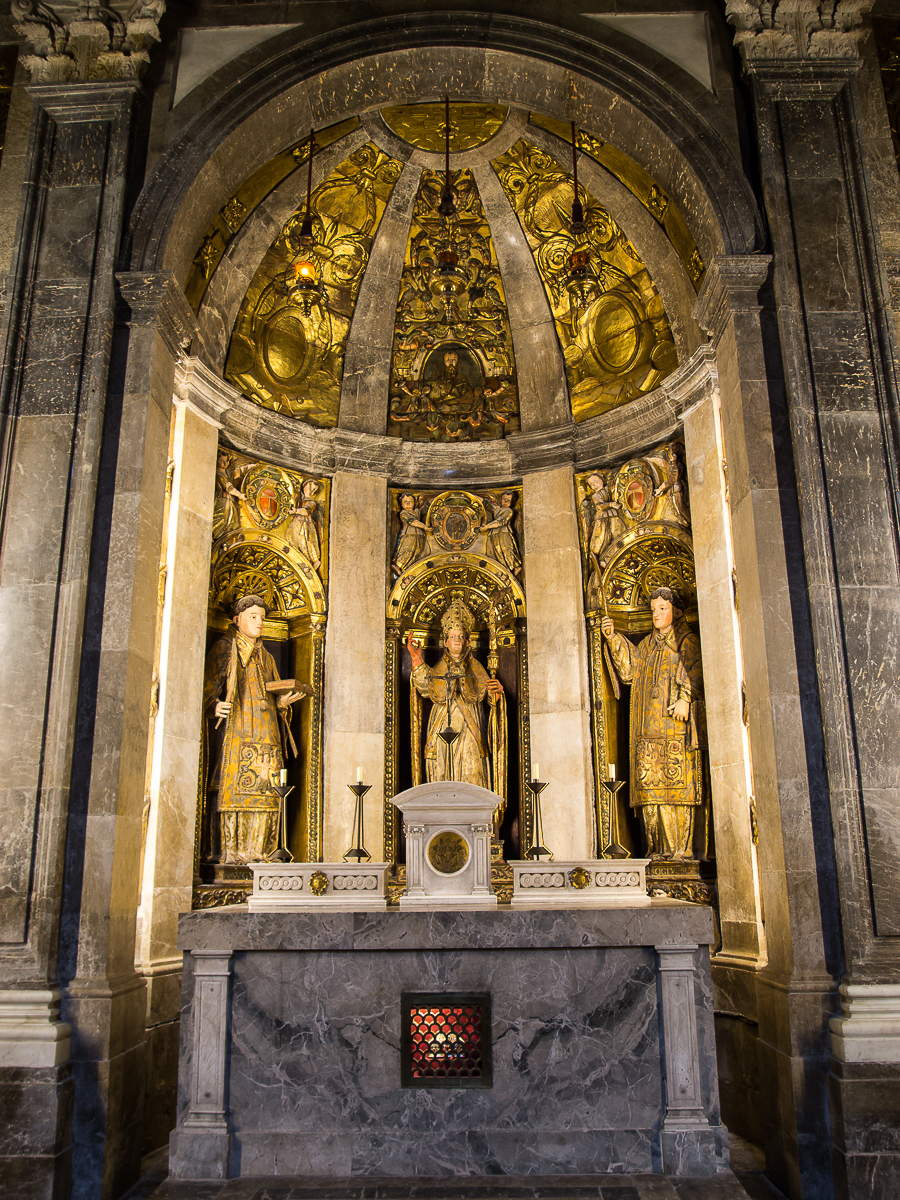He is an important name in the early history of the Catholic Church in Hispania, present day Spain, but very little, if anything is known about his birth, early life, or upbringing.
The Roman Emperor Valerian had a sudden shift in religious policy in 257 with the following years witnessing severe imperial edicts directed against Catholicism. Bishops, priests, and deacons were executed immediately, with followers having all of their possessions confiscated, and then given a choice of offering heathen sacrifice or death. The martyrs that fell in this persecution were innumerable, and their tortures and deaths as various and painful.
Fructuosus had risen to prominence as the Bishop of Tarragona, which was a crucial center for Catholic activity during this time.
On January 16, 259, Fructuosus, along with 2 of this companions, Saints Augurius and Eulogius, were going to bed when they were arrested and thrown into prison where other Christians were being held.
They were brought before proconsul Aemelianus and examined. When inquired about the pagan gods, they affirmed their belief in the God of Christianity. He was asked, “Are you the bishop?”, of which he responded, “I am”. The proconsul then stated, “You were” and they were then sentenced to be burnt alive.
They were then taken to the Amphitheater of Tarraco where they were bound to wooden posts above timber and set on fire. Officers were posted but Christians were able to get through a gate and close to him. One of them, Felix, grabbed his hand and asked for him to remember him in heaven of which he replied, “I am bound to bear in mind the whole Catholic Church from East to West.”
In a loud voice he addressed the crowd that they would not be without a shepherd for long, that the Lord’s promises would not fail them in this life or the next.
As the flames rose and enveloped the martyrs, their bonds were burnt and they were able to kneel, stretch out their arms, and pray until they died.
His relics were later gathered, brought back to the church, and buried beneath the altar.
Saint Augustine, one of the most influential theologians of his time, wrote about Fructuosus, Augurius, and Eulogius. Others have also written about the account including an unknown in the Passio Fructuosi.
In the 5th century, his relics were transferred to a Visigothic Basilica that was built over the amphitheater.
They left a profound impact on the early Catholic community, inspiring many others to remain strong in their faith despite the immense risks they faced. Their unwavering dedication to their beliefs, even in the face of a brutal death made them symbols of courage, strength, and devotion.
His story is a reminder of the sacrifices made by early Catholics and their unwavering commitment to their convictions.
He is the patron saint of those undertaking a fast.
His feast day is January 21.
For God’s Glory.


